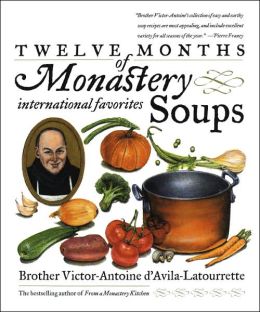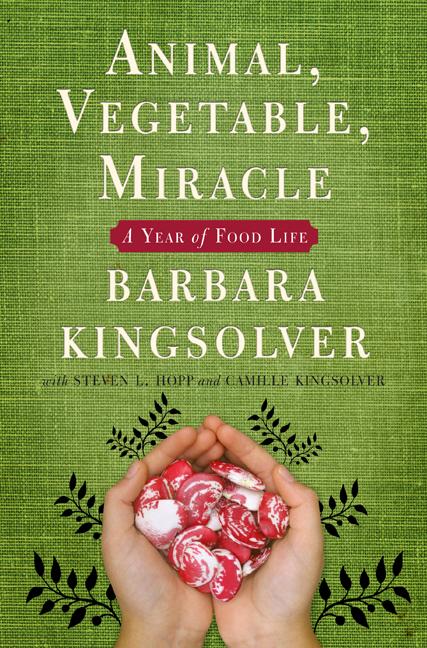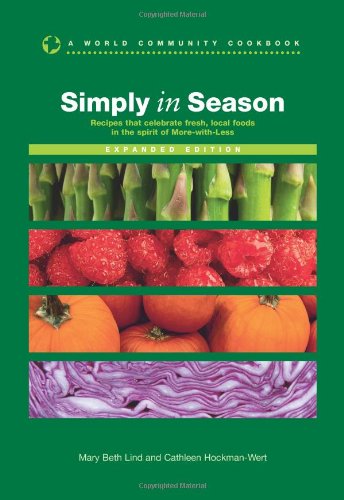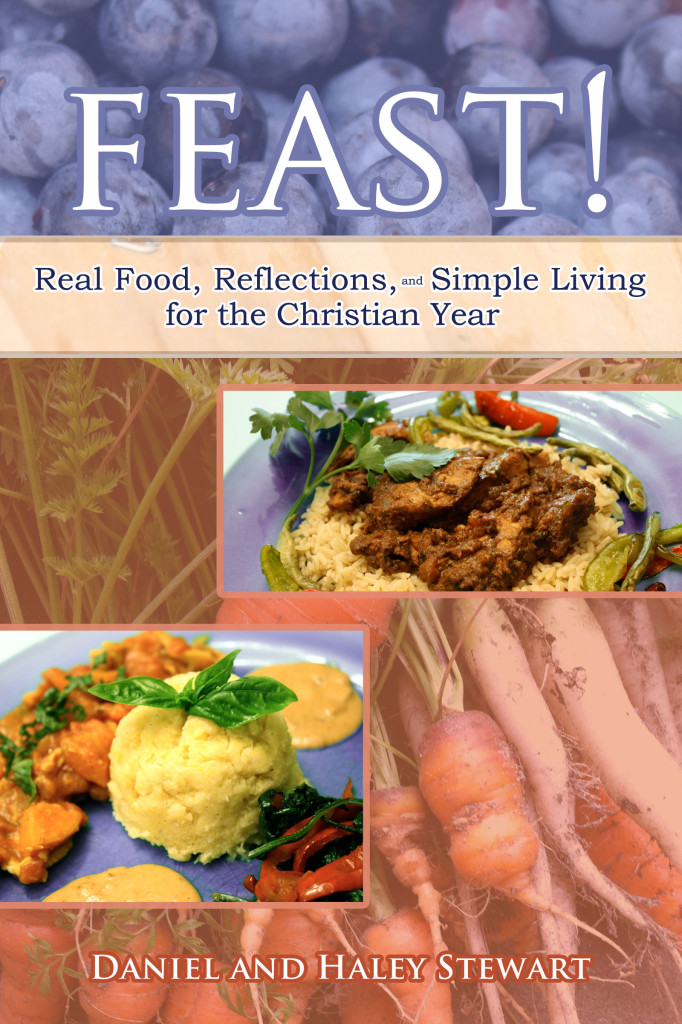Welcome to Carrots! I'm so glad you're here. This is where I share thoughts on liturgical living, faith, parenting, culture, and an extra dose of Jane Austen. You can sign up for my email newsletter here to stay in touch, or look me up on Instagram!

Since our conversion, I’ve gained more appreciation for the rhythms of the Christian Year and that by observing those seasons, the story of the Gospel unfolds. One way to participate in the Christian Year is to feast and fast according to the traditions of the Church which, obviously, involves food! Sharing food with family and friends should ideally be a daily reminder of sacred things: The Last Supper, the Holy Eucharist, and the Wedding Feast of the Lamb (all connected, of course). If we consider the partaking of food not as a mundane event but as an intersection with the sacred, then what we eat, where it came from, and who grew it becomes more important.
Something we try to add to the rhythm of our lives is the practice of eating seasonal food. It seems elementary to eat according to what’s growing but until recently I never knew what was in season–produce is available at the grocery store all year round! Until we started growing a garden, I really had no idea if it was the season for tomatoes or for butternut squash.
A few books have been really helped me understand some of these ideas.
I love this collection of Wendell Berry’s agrarian essays: The Art of the Commonplace. I’ve written about how Berry’s emphasis on the value of home has helped me embrace my vocation as a mother, but his essays have been just as life-changing in regards to food ethics. Please read ASAP!
Barbara Kingsolver’s farm memoir Animal, Vegetable, Miracle is a wonderful introduction to eating local and seasonal foods. It chronicles her family’s experience moving back to a family farm and producing almost all of their food for a year. I don’t agree with every little thing she says, but it’s a delightful read that found informative and inspirational.
Seasonally-organized cookbooks have also been really helpful in training me about what’s in season and how to cook according to what’s growing in our garden.
If you’re just starting out, I highly recommend Simply in Season (by the creators ofMore with Less, an essential on my mother’s cookbook shelf). It is organized by Spring, Summer, Fall, and Winter recipes and is very real food friendly. For someone like me who didn’t have the first idea how to cook an eggplant or a spaghetti squash when they showed up in our CSA bag or our frontyard garden, there’s a handy and simple guide in the introduction explaining how to prepare different kinds of produce in a myriad of ways. It is definitely my first stop when I’m trying to figure out how to prepare a veggie I’ve never cooked with or when I want to attempt a seasonal meal. The recipes sometimes need additional spice added but then again, we like things spicy!
And I also adore Brother Victor-Antoine d’Avila Latourrette’s cookbooks. They contain simple, frugal, almost entirely vegetarian natural food recipes by a monk who cooks with ingredients from his monastery garden. I love that they’re organized according to season and the Christian Year! Although, because Brother Victor-Antoine’s monastery is in the northeast, we have to make some substitutions because what’s in season in sunny Florida is usually a little different.

Twelve Months of Monastery Soups is a great and easy way to incorporate all those seasonal veggies. This one was gifted to us and we use it often. “The Monk,” as we affectionately refer to him, also has a Twelve Months of Monastery Salads, but we haven’t added it to our Cookbook Library yet.
We also love Sacred Feasts which is organized by month according to the feasts and fasts of the Christian Year. January, for example, contains seasonal recipes as well as specific ideas for Epiphany and Saint Anthony’s Day.
We recently acquired From a Monastery Kitchen which is similar to Sacred Feasts, but organized according to the four seasons instead of by month. We’ve never tried a recipe by Brother Victor-Antoine that didn’t turn out delicious!
Do you try to cook seasonally? What books have inspired and assisted you?
Update: My husband Daniel and I created our own cookbook of real food recipes that follow the Christian Year! Check it out!







What a great post, Haley! I just turned in my last paper for school yesterday and since I will have more time on my hands I am going to the library tomorrow. I hope they have at least one of these books you mentioned (our library isn’t all that well-stocked). I have had trouble with eating seasonally as well–partly because I just haven’t been attuned to it and partly because I keep moving and seasonal produce is a bit different! These books sound like great resources. Thanks!
Thanks! After almost four years of trying to eat seasonal produce I feel like I’m just now getting the hang of it.
Love this post! I am just finishing up _Animal, Vegetable, Miracle_ and really liked it (though I am with you in not agreeing with every single thing Ms. Kingsolver says). I am just starting to move to a more seasonal menu for our family. This is our first year on our farm, and I’m so excited about our garden! I’m also pumped about checking out our new county’s farmers market! Thank you for all the great book recommendations! I’ve put them all on my book wish list
Good luck on your garden! I found Kingsolver’s book so inspiring and fascinating.
Haley, do you know much about the JPII Institute in DC? I got my MTS from there and we read a ton of Wendell Berry and there is a lot of thought about food, the cosmos, etc and making a truer approximation of the Christian life to every sphere of life. (If you’re interested in reading more, you can find the writing of many of the profs in the Theological Journal “Communio” or by looking up the work of David L. Schindler, former Dean and Provost.) While much is heavy-duty metaphysics and theology (which the average Catholic may or may not be up for!), there is also an enthusiasm for and interest in engaging popular speakers (we heard Joel Salatin while I was studying), literature and the arts. It seems like your interests match the mission nearly perfectly – though Dr. Schindler would probably affirm that any Christian’s should if they examine the fullness of the world around them and the content of the Scriptures and our anthropology. I’m sure you’re unlikely to be in the market for a higher ed degree right now, but thought you might find the activity of the Institute interesting, especially in publications and special conferences, etc.
Hope you are feeling well!!!
I’m not familiar with it at all so now I’m super intrigued! I will definitely look into what resources I can get my hands on after I get some brain cells back post-partum
Thanks so much for sharing these! I haven’t read/cooked from any of them, but a few of them had already made their way to my WishList. Now I’ll have to add to others, and perhaps even add some to my summer reading list! What a beautiful thing it is how the Church calendar fits so perfectly with the natural season’s produce. It’s like it was planned that way… oh wait, yeah it was! =)
Oooo! Good ! I’m glad they were new to you and I hope you love them. I think they’ll be right up your alley, Sarah.
Ah! I’ve only discovered Wendell Berry and, cliche though it may sound, am finding him very much influencing my way of thinking, especially when it comes to what kind of home I want to nurture and cultivate. And this is coming from someone who doesn’t really like to go outside, has zero experience in gardening, and, to be completely honest, doesn’t even like animals all that much because I deal with enough poop as is…..so that’s saying something
Haha! Reading Wendell Berry really changed my idea of home as well. And gave me a much needed appreciation for work that centers around the home.
I love this post! I’m a huge fan of eating seasonally, and I’m not exaggerating when I say that I use “Simply in Season” about every other day if not more. You’re right – there are huge connections between living the liturgical year and living/eating seasonally. One book I wanted to recommend is “A Continual Feast” by Evelyn Vitz. It’s not as seasonally focused as SIS, but is organized around the liturgical seasons, and because it features traditional recipes (mostly from non-tropical climates), which use what is available at that time of the year, it ends up being seasonal too (if you followed that!) Anyway, that book also has a good emphasis on Christian hospitality and generosity, which I think is another key component of a Christian philosophy of food.
I’ve heard of that one but I don’t have it! I will have to add it to my wishlist. I love liturgically-centered traditional recipes! Sounds like we’ve got to add this to our library.
One other thought – I thought the connection Kingsolver made between eating seasonally and chastity was fascinating! And really insightful. (In a nutshell: how can we expect our children to postpone the good of sex until marriage when we don’t feed them strawberries in December?) i.e. our food culture is premised on not waiting for something good but getting it whenever and wherever you can, despite the consequences. Another plug for eating seasonally and helping our children live liturgical and natural rhythyms!
(I meant – when we *do* feed them strawberries in December. Whoops!)
I see Jane already mentioned one of my favorites, “A Continual Feast.” This book was just foundational in leading our family to celebrate the liturgical seasons at home. I used to re-read it at least once a year.
Amazon link:
http://www.amazon.com/Continual-Feast-Celebrate-Throughout-Christian/dp/0898703840/ref=sr_1_1?s=books&ie=UTF8&qid=1368633390&sr=1-1&keywords=a+continual+feast
Some of my favorite seasonal recipes come from The Redwall Cookbook, based on the Redwall novels. The series features a cast of woodland creatures who live together in an abbey, and there’s at least one elaborate feast per book. The cookbook has delightful illustrations along with the recipes.
I didn’t know this existed! I love the Redwall books and want to read them with my son next year. What a cool idea for a cookbook!
“The Art of Simple Food” revolutionized my desire and kindled my fervor in seasonal eating. It’s amazing. Are you an Alice Waters fan? I am!
Thanks for sharing! I would love to homestead, but alas, we are renters, in the city. I am looking into container gardening, though, so all of this will be helpful. Perhaps I am just that uneducated, but only eating seasonal in Minnesota- sounds terrifying. Baby steps!
Hi! I just came upon this cookbook which you might find interested. I don’t know much about Saint Hildegard but I love that God helped guide her in what was nutritious for us and she embraced it. Sometimes I get so swept up in making sure I’m feeding my family the best things that I feel like I’m obsessing over it. Her story reminds me that I need to let God into those desires to provide nutrition for my family. He can help guide me in doing my best rather than pressuring myself to always be perfect with it. Reminds me to be patient as I learn. http://www.liguori.org/from-saint-hildegard-s-kitchen.html
I love “Vegetable Literacy” and ‘Local Flavors” (Deborah Madison), as well as the “… for a New Generation” (Canning… ; Whole Grains… ; Vegetarian… ) by Liana Krisoff. They’re all great for seasonal cooking, and are the books I reach for most often.
On a less healthful note, I like the book “A Year of Pies” by Ashley English that is also arranged seasonally.
….and have a look at a book by my friend’s husband, Ernst Schuegraf, “Cooking with the saints”. A real labour of love, Ernst researched these recipes and their stories by travelling all over the world, then cooked in his own kitchen and took the photos. You can find it here: http://www.amazon.com/Cooking-With-Saints-Ernst-Schuegraf/dp/089870779X